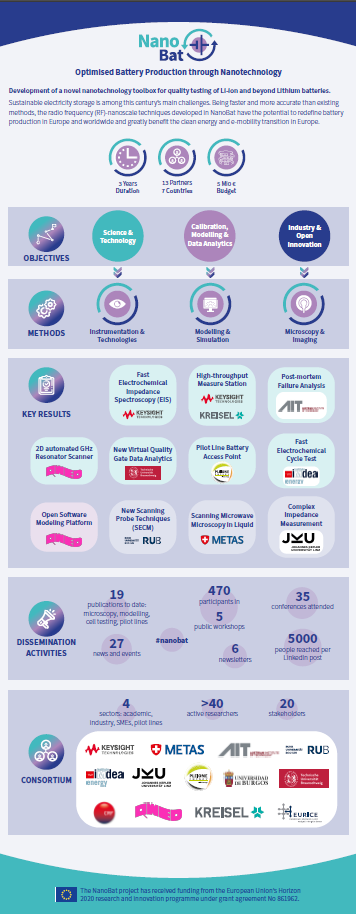NanoBat findings
After three intense years of ground-breaking research, the EU research project NanoBat ends with revolutionary solutions for battery production in Europe and beyond. The consortium of 13 academic and industrial partners have jointly developed a novel nanotechnology toolbox for quality testing of Li-on and beyond Lithium batteries with a particular focus on the nanoscale structure of the SEI (solid electrolyte interphase) layer – an electrically insulated layer preventing ongoing electrolyte decomposition and responsible for battery performance and safety.
“With the new NanoBat technologies European manufacturers and SMEs will be adequately equipped to create a competitive manufacturing value chain for sustainable battery cells in Europe.”
Dr Ferry Kienberger of Keysight Technologies and Coordinator of NanoBat.
Over time, the green production methods can be scaled up through the involvement of global players in the automotive industry and spread to additional markets, such as speciality batteries for satellites, green buildings, GHz-materials or modelling software.
The findings will also foster the EU’s industrial competitiveness and innovation capacity and have a positive impact on the circular economy and the environmental footprint of battery production, as more precise testing methods result in a decrease of energy and raw material use and waste.
For a concise overview of the project and its findings, have a look at our infographic.














